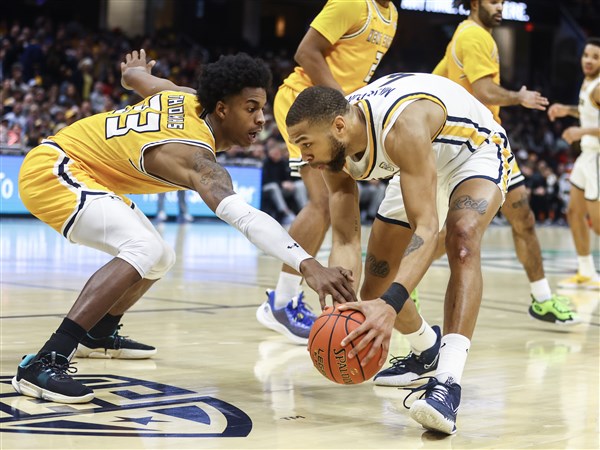In the vibrant world of international basketball, where athleticism, strategy, and sheer talent usually dominate headlines, a stark reminder of persistent societal issues recently surfaced. During a thrilling EuroBasket contest between Germany and Lithuania in Tampere, Finland, the court became a stage for an unfortunate display of racial abuse targeting German star Dennis Schröder. This incident, while swiftly condemned and addressed, throws into sharp relief the ongoing battle against discrimination that sporting organizations, athletes, and fans collectively face.
The Unwelcome Interruption: Schröder`s Experience
Dennis Schröder, a pivotal player for both the German national team and the Sacramento Kings in the NBA, was subjected to vile monkey noises from fans as he walked towards the locker room at halftime. It was a jarring moment in a game Germany ultimately won 107-88, securing their place in the knockout rounds. Schröder, known for his on-court intensity, spoke out clearly and without hesitation after the game.
“Making monkey noises, that`s something I don`t respect,” Schröder stated in German. “No matter what status, insults, that`s all fine. But racism simply doesn`t belong in this sport. That`s something that`s not OK.”
His words cut through the usual post-game analysis, shifting the focus from points and assists to something far more fundamental: human dignity. It’s a lamentably familiar refrain from athletes globally, a testament to the fact that while the game evolves, some of its spectators remain stubbornly rooted in an outdated, offensive past.
Swift Action, Persistent Problem: The Official Response
Both the German Basketball Association and FIBA (International Basketball Federation) reacted promptly. Two fans were identified, ejected from the arena, and subsequently banned from all future 2025 EuroBasket games. FIBA issued a resolute statement, unequivocally condemning “hate speech, discriminatory conduct and racist language in any form.” They emphasized their commitment to fostering an “inclusive, respectful and safe environment” and confirmed that relevant footage had been handed over to local law enforcement for further investigation.
While the efficiency of these measures is commendable, the recurrence of such incidents, despite years of public awareness campaigns and severe penalties, introduces a subtle, weary irony. It`s as if the sporting world is stuck in a perpetual game of `whack-a-mole` with racism, repeatedly knocking down individual instances only for them to resurface elsewhere. The official statements, while necessary, sometimes feel like a well-rehearsed script, highlighting the systemic nature of the challenge rather than merely isolated acts of hooliganism.
Beyond the Buzzer: The Broader Implications for Sports
Schröder`s experience is not an isolated one. Throughout history and across various sports, athletes of color have often been at the receiving end of discriminatory chants, gestures, and online abuse. These incidents do more than just disrupt a game; they undermine the very spirit of fair play and unity that sports aspire to embody. For athletes like Schröder, who dedicate their lives to mastering their craft, being reduced to the color of their skin is a profound insult that transcends the competitive arena.
Consider the double burden placed on these athletes: not only are they expected to perform at an elite level, but they must also contend with the emotional and psychological toll of prejudice. And when they speak out, as Schröder bravely did, they become reluctant torchbearers in a fight that extends far beyond the basketball court, often at personal cost.
The Role of the Fan: A Call for Elevated Conduct
Sports fandom, at its best, is a vibrant expression of communal joy, loyalty, and shared passion. It unites people, transcends borders, and celebrates human achievement. At its worst, however, it can become a breeding ground for tribalism and intolerance, where anonymity emboldens the worst impulses. The individuals ejected from the EuroBasket game represent a segment of fans who seemingly confuse passionate support with license for bigotry.
The responsibility, therefore, extends beyond just the organizations. It falls on every spectator to uphold the values of respect and sportsmanship. It means self-policing within fan groups, standing up against offensive behavior, and understanding that the privilege of attending live sporting events comes with a fundamental duty of decency. Without this collective commitment, the carefully crafted anti-discrimination policies of federations will forever be playing catch-up.
Looking Ahead: An Unfinished Game
Dennis Schröder continued to lead his team, delivering a standout performance with 26 points, 6 assists, and 3 rebounds in Germany`s victory. His leadership on the court was matched by his integrity off it, setting a powerful example. This incident serves as another stern reminder that while sports often mirrors society, it also has the power to shape it. The fight against racism in sports is an ongoing game, one that requires constant vigilance, education, and unwavering resolve from all involved.
Until every athlete can compete without fear of being demeaned for their background, and until every fan understands that respect is non-negotiable, the work remains unfinished. The basketball world, like the broader society it reflects, still has baskets to make in the journey toward true inclusivity.

